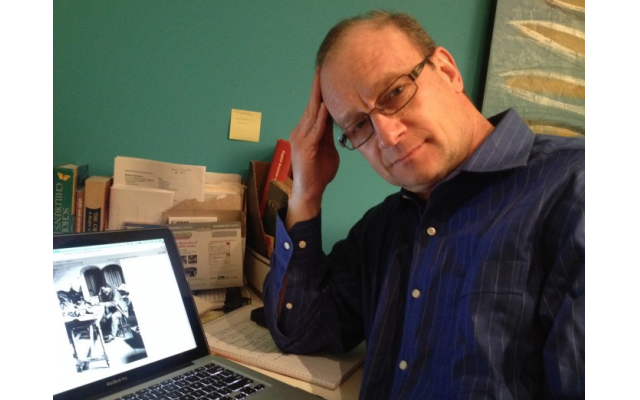British Jews Between ‘The Devil and the Deep Blue Sea’
The prospect of a Labour government led by Jeremy Corbyn has many British Jews considering their future in the United Kingdom.
Dave Schechter is a veteran journalist whose career includes writing and producing reports from Israel and elsewhere in the Middle East.
Some readers may be familiar with the English rock band The Clash and the song “Should I Stay or Should I Go?”
The first stanza:
Darling, you got to let me know
Should I stay or should I go?
If you say that you are mine
I’ll be here ‘til the end of time
So you got to let me know
Should I stay or should I go?
Whether – and, if so, how – Britain exits the European Union might be the ultimate example of this question.
The next chapter in that saga may hinge on the Dec. 12 parliamentary elections. If polling is accurate, so might the future for a significant portion of the nearly 300,000 Jews in the country formally called the United Kingdom of Great Britain and Northern Ireland.
For Jews who support the Labour Party – and polling suggests that their ranks are shrinking – the issue is anti-Semitism within its ranks, starting with party leader Jeremy Corbyn.
For a larger segment of British Jewry “Should I stay or should I go?” may mean from the U.K. itself.
The Community Security Trust reported a 10 percent increase in anti-Semitic incidents in Britain in the first half of 2019, against the same period last year. “The problem is spreading across the country and online, it reflects deepening divisions in our society and it is causing increasing anxiety in the Jewish community,” David Delew, the Trust’s chief executive, told CNN.
The anxiety is severe enough that 42 percent of British Jews would “seriously consider emigrating” if a Labour Party government led by Corbyn came to power, according to a survey conducted in February and March for The Jewish Chronicle newspaper by the polling firm Survation.
That survey found that 87 percent of Jews view Corbyn as being anti-Semitic and that 78 percent would prefer a “hard Brexit” (leaving without a deal on trade and other matters) to Corbyn becoming prime minister.
“And yet many Jews also fear a hard Brexit under [Conservative party leader and Prime Minister] Boris Johnson. They look at the choice confronting them and worry that they are being asked to choose between the devil and the deep blue sea,” Jonathan Freedland, a Jewish columnist for The Guardian, wrote.
The anti-Semitic bill of particulars against Corbyn includes his associations, actions and words, particularly regarding Israel and groups deemed to be terrorist organizations, as well as the atmosphere within the party.
In May, the UK’s Equality and Human Rights Commission opened an investigation into whether Labour “unlawfully discriminated against, harassed or victimised people because they are Jewish.”
At the end of October, Rabbi Jonathan Romain told the 823 families in his congregation that “a Corbyn-led government would pose a danger to Jewish life as we know it.” In a letter, he wrote, “I should stress that the problem is not the Labour Party itself, which has a long record of fighting discrimination and prejudice, but the problem is Jeremy Corbyn. Corbyn-led Labour, has at best, let anti-Semitism arise within its ranks, or at worst, has encouraged it,” the rabbi wrote in the letter, according to the Jewish Chronicle.
For his part, Corbyn has said that “people who hold anti-Semitic views have no place in the Labour Party.”
Not every Jewish Labourite opposes Corbyn. “I’ve known Jeremy for over 30 years,” Jon Lansman, the Jewish leader of the Corbyn-backing Momentum campaign group within Labour, told Newsweek. “He doesn’t have an anti-Semitic bone in his body. He has dedicated his whole life to fighting all forms of oppression and prejudice.”
A paper in the journal Electoral Studies noted that as British Jews have become more middle-class and less likely to feel restrained by anti-Semitism, their allegiance to Labour has softened. “Both of these factors make Labour less appealing to Jews than is the case for other minority groups,” the paper said. “We also find that Jeremy Corbyn is disliked by Jews more than non-Jews, irrespective of how they feel towards Labour generally.”
Senior Rabbi Laura Janner-Klausner of England referenced “Fiddler on the Roof” in an interview with Newsweek, namely the scene in which a Russian rabbi is asked: “Is there a proper blessing for the Tsar?” “A blessing for the tsar? Of course,” the rabbi responds. “May God bless and keep the tsar far away from us.”
Janner-Klausner said, “That is what people feel about Corbyn.”




comments